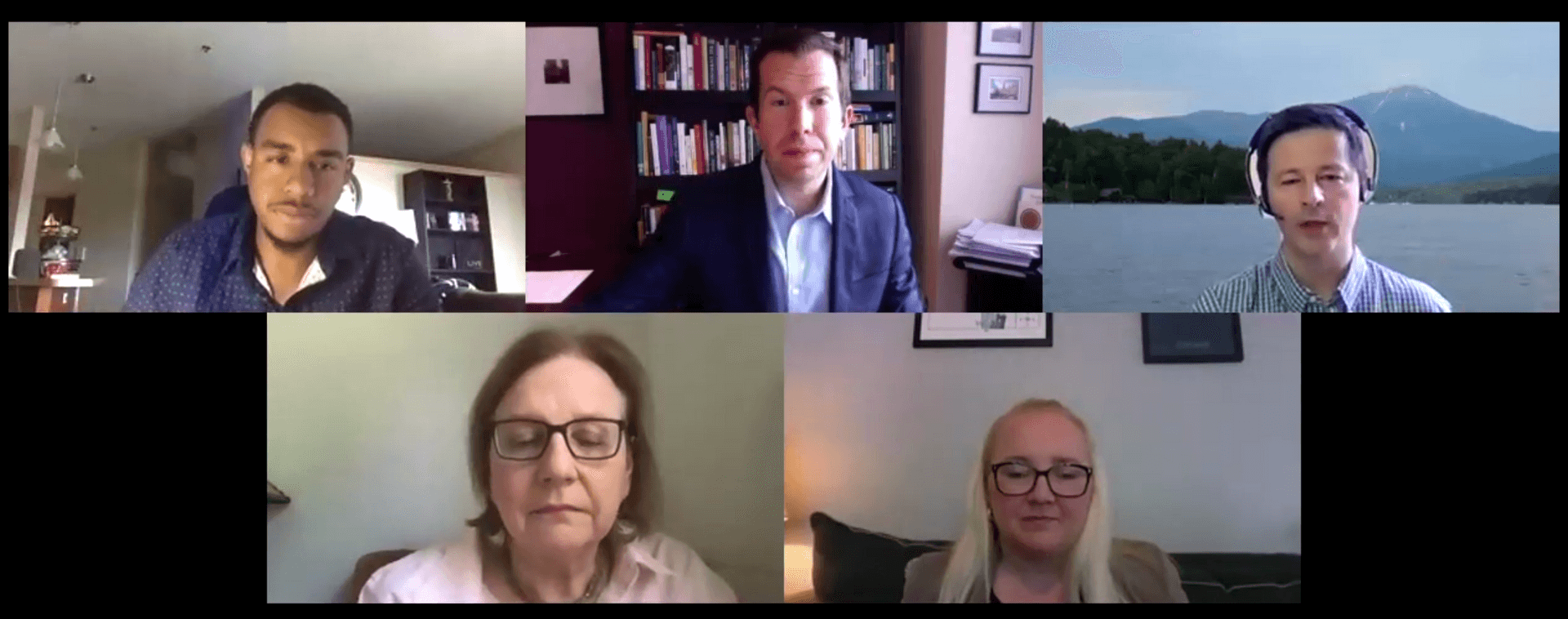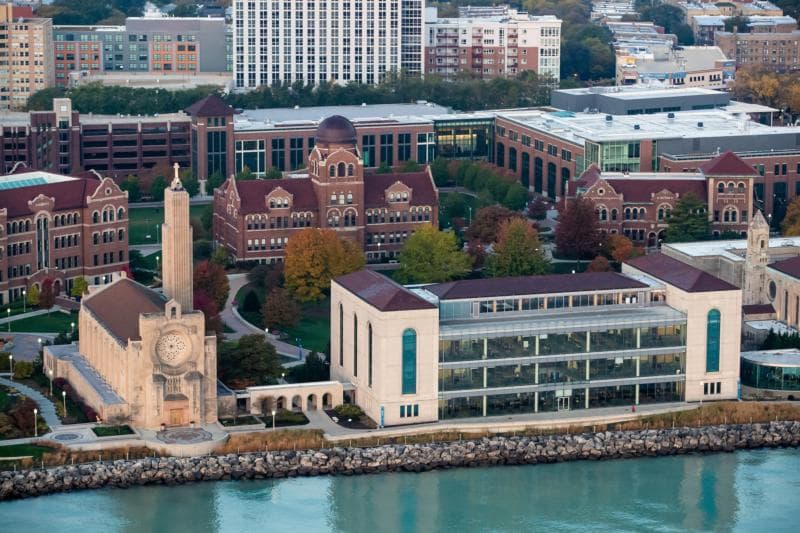Reopening Catholic college campuses this fall presents a “wicked problem” with life-and-death consequences, several theologians said Tuesday.
These problems are “so complex as to defy any single solution” and “require ethical triage because every option, it seems, brings a potential for harm to someone in some way,” explained Patrick Hornbeck, professor of theology at Fordham University, at the start of the July 14 online panel, “Reopening Justly or Just Reopening?”
Recognizing that perfect solutions to the problems of whether and how to bring students, faculty, and staff back to campus do not exist, Hornbeck and four other theologians argued that the tradition of Catholic social thought must guide Catholic institutions as they make tough decisions that will impact countless lives and livelihoods.
Christine Firer Hinze, professor of theological ethics at Fordham University, called for patience, honesty, and a recognition that “it’s going to be messy no matter what.”
Depicting the situation as a “stormy, choppy sea right now with the direction of our respective Catholic institutional ships,” Firer Hinze said that Catholic social teaching can provide a “set of navigational markers, beacons or buoys in our stormy sea, which we’re all in right now, as we navigate our respective little boats and decide who’s in our armada that we need to care about as we move forward.”
In order to ensure those decisions do not neglect those in particularly vulnerable positions, she said that Catholic institutions should ensure that they are finding ways of “flipping the pyramid of who we listen to most carefully normally.”

Gerald Beyer, associate professor of Christian ethics at Villanova University, added that Catholic social thought has consistently involved discernment around the necessary requirements to protect human dignity.
In this case, he argued, Catholic institutions must not “engage in magical thinking” and instead must ensure their decisions are “guided by the best available science,” recognizing that “Catholicism doesn’t see a conflict between faith and science” but holds that “science and faith are ultimately aiming at the same reality.”
Catholic social thought also cherishes people’s “right to participation” in decisions that have dramatic impact on their lives, Beyer said. Here, that means that Catholic colleges and universities must find ways to allow students, faculty, and staff to have real input in the decisions their institutions make.
Craig Ford, Jr., assistant professor of theology and religious studies at St. Norbert College, urged decisionmakers to keep in mind that while everyone is vulnerable to the virus, there are also “inequalities in that vulnerability,” noting as an example the risk to those who live among college students as part of jobs in residence life.
Referencing statistics about the virus’s disproportionate impact on communities of color, he encouraged Catholic institutions to take steps to ensure they do not exacerbate those disparities by firing or letting go employees from those communities in disproportionate numbers.
Ford also called on Catholic colleges and universities to resist the temptation to think of their students primarily as consumers.
“Trust our students as moral agents and part of our communities,” Ford urged. “We talk to our students as if they’re customers… but they know they’re living in a pandemic as well, so can we ask them questions that ask them to think about what they might be willing to do for the common good, and that would be an education in social justice that we could do as Catholic universities.”
The question of moral agency in the current circumstances is also important because making tough, life-and-death decisions “takes its toll on people as moral actors,” said Kate Ward, assistant professor of theological ethics at Marquette University.
“All Catholic colleges should plan for a year of lamentation when this over,” she argued, noting that by the time the pandemic is behind us, “we will have lost people who are with us now, our institutions will be changed, and each of us will be changed by the choices we’ve made during these days.”
Citing her colleague Father Bryan Massingale’s work on racial justice and the Catholic Church, Ward described lament as “telling the truth in response to suffering, refusing to look away.”
A year of lamentation, she said, would allow Catholic institutions space to “name and grieve the harms that were done and could have been avoided, the lives lost and human potential that was thwarted, and looking inward, we’ll need to lament the moral injury to the decision makers and all those caught in impossible situations.”
Hornbeck told Crux that the panel discussion confirmed that “Catholic colleges and universities have a distinctive resource upon which to draw in thinking about reopening: the virtues and values of Catholic social teaching, like solidarity, the common good, and concern for the most vulnerable.”
The panelists “reminded us that it’s not just an ethical option, but an obligation, to approach reopening decisions in ways that forsake a zero-sum logic and that invite our academic communities into a spirit of shared sacrifice,” he continued.
“If Catholic institutions can do that in the midst of the twin crises of COVID-19 and structural racism, we will be honoring the best of our tradition,” concluded Hornbeck.
















